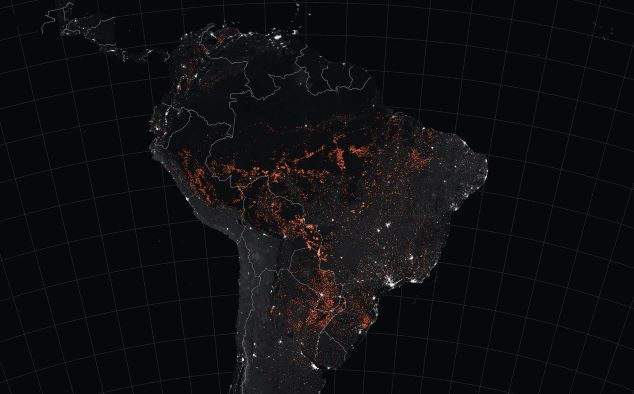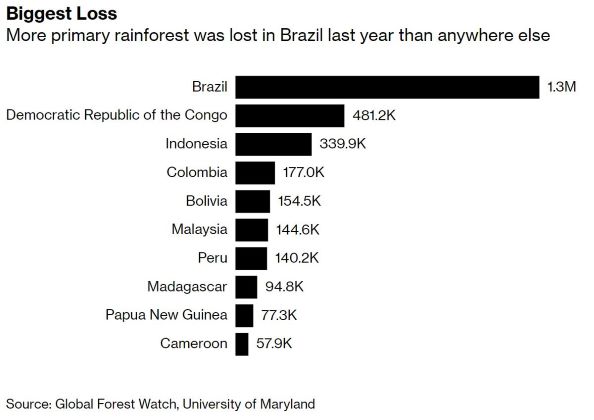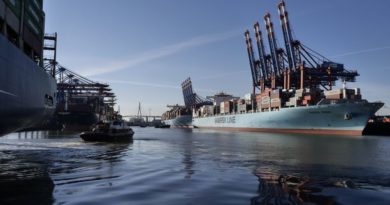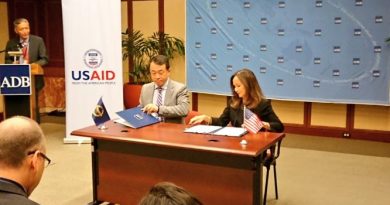Apathy Towards Amazon Wildfires Exposes World’s View on Climate Change
The Amazon rainforest is claimed to provide 20 percent of the world's oxygen, houses about 10 percent of the world’s biodiversity. Yet the lackadaisical attitude of Brazil's President to fight the fires have forced the environmentalists, and other countries now, to raise their voice.

On Friday, after a whole three weeks, world leaders woke up to news of the dense smoke of one of the most devastating fires in Amazon. While international media was busy reporting how video games cause violence, one of the most violent assault on nature and our planet’s future was going unreported for more than a fortnight.
The saddest yet frustrating part in the whole fiasco was played by Brazil’s President Jair Bolsonaro who threw his hands up saying he could not do anything to stop these blazing fires. All the while, environmentalists from all over the world pleaded with him to act. Bolsonaro wasted no time to point fingers at the same environmentalists saying that they have started the fires to shame his administration.
French President Emmanuel Macron urged the G7 to pressure Brasil’s president to take more action against the fires on Friday. He was followed by Justin Trudeau of Canada and by providing lip service, Trump also joined in on the fray.
Our house is burning. Literally. The Amazon rain forest – the lungs which produces 20% of our planet’s oxygen – is on fire. It is an international crisis. Members of the G7 Summit, let's discuss this emergency first order in two days! #ActForTheAmazon pic.twitter.com/dogOJj9big
— Emmanuel Macron (@EmmanuelMacron) August 22, 2019
Amazon fires vs world politics
Only after the EU threatened trade retaliation by canceling deals with the South American country, Bolsonaro woke up and authorised his army to help contain the blaze. It may be all too late as by then, vast swathes would be lost to these deadly fires. This was ironical as Bolsonaro had professed to feel “profound love and respect” for the Amazon a few days earlier.
Forest fires in the Brazilian Amazon, which accounts for more than half of the world’s largest rainforest, have surged in number by 84 percent this year, according to Brazil’s National Institute for Space Research, destroying vast swaths of a vital bulwark against global climate change.
The fires that are devastating the Amazon are also destroying Brazil's image internationally. Even the agribusiness sectors are already admitting that the government's anti-environmental policies can bring economic damage. #SOSAmazonia #SaveTheAmazon pic.twitter.com/llxm8PchKQ
— Greenpeace (@Greenpeace) August 24, 2019
A record number of fires, over 72,000, were detected in the world’s largest rainforest. Environmental groups say the policies of Brazil’s president Bolsonaro, encourage deforestation of the Amazon, which, in turn, allows for more fires. Environmentalists have been warning against his controversial plans for more agriculture and mining in the region to speed up deforestation.
“We have to give the population the opportunity to develop and my government is working for that, with zero tolerance for crime – and that is no different for the environment,” Bolsonaro said in his televised speech.
The Amazon rainforest are reported to provide 20 percent of the world’s oxygen, besides housing about 10 percent of the world’s biodiversity. It represents over half of the planet’s rain forests and exhibits the largest and the most diversified tropical rainforest as a natural reservoir of genetic diversity. It has more than 40000 species of plants, 3000 of fishes, 1300 of birds, mammals, amphibians, reptiles and more than 125000 invertebrates. Amazon rainforest is popularly called the ‘lungs of the planet earth’ because its vegetation continuously recycles carbon dioxide into oxygen and is a major carbon sink.

People have been deliberately starting fires in an effort to illegally deforest land for cattle ranching. When these forests are burned, they can release 200 tons of carbon per hectare. As the world consumes more and more meat, the land clearing grows to accommodate the world’s carnivorous appetite. Brazil became the biggest loser and saw 1.35 million hectares of its primary rainforests disappear last year.
What we can do to help?
While we wait for the amazon fires to become yet another political agenda, we as individuals have a choice at hand to make a difference. We can do one thing to discourage deforestation–eat less meat.
Livestock production accounts for at least 51% of all greenhouse gases (GHG). Put another way, eating animals accounts for over half of all the climate carnage that we’re witnessing across the world. So , if we can bear to reduce the amount of animal protein in our plates, it will mitigate GHGs and stop land clearing elsewhere in the world.
90% of deforestation in the Amazon is for animal agriculture which is also the leading cause of methane and nitrous oxide. Rainforests normally store 200 tons of carbon per hectare. When you convert it to grassland to graze cows, its drops to 8. So the next time you order animal products, try shifting to a vegetarian substitute. This will help you save money and our planet in the long run.




